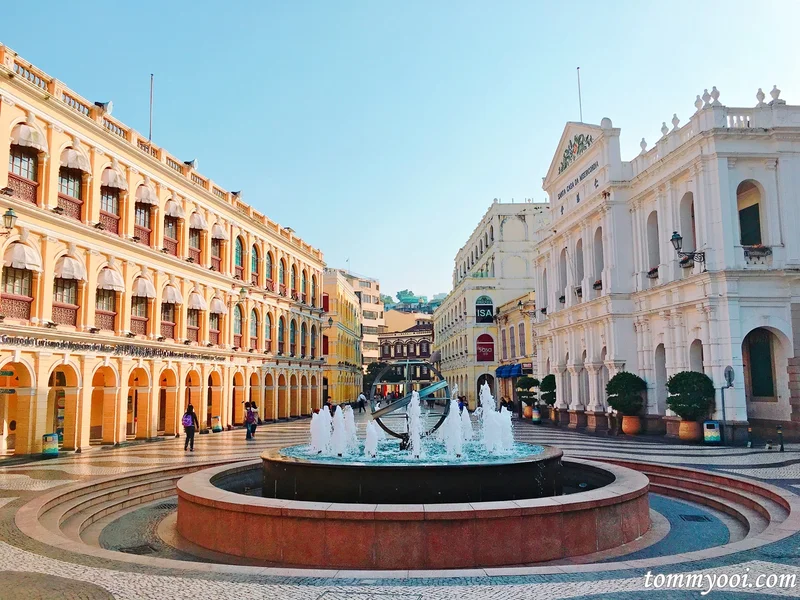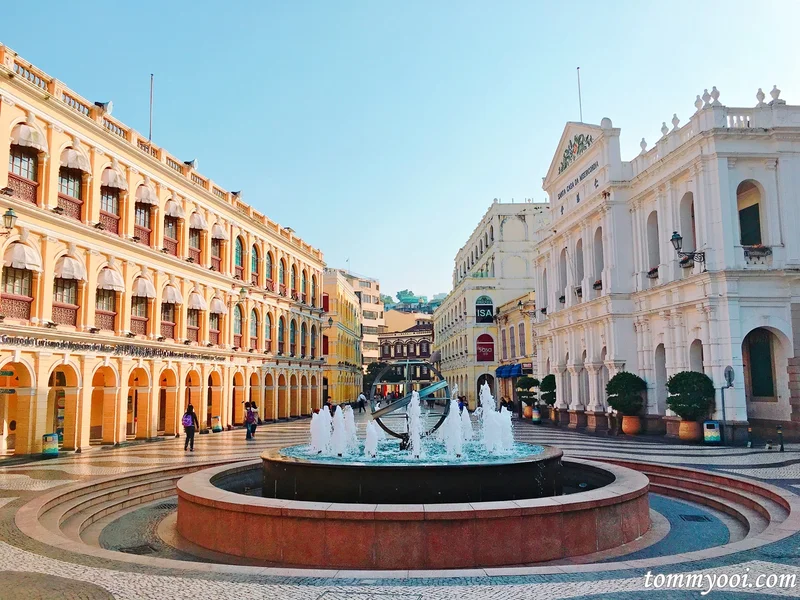Article Directory
So, another independent news outlet bites the dust in a corner of the Chinese empire. The final headline from All About Macao was “Take care and goodbye.” How quaint. How polite. It’s the media equivalent of being walked to the gallows and telling the hangman to have a nice day.
Let’s be real. This wasn’t a business decision. This was an execution. When a government revokes your registration, arrests your reporters, and makes it impossible for sponsors to touch you with a ten-foot pole, you don’t have a "choice." The team at All About Macao didn't "feel they had no choice." The choice was made for them, in a quiet, sterile room in Beijing, long before they typed out their farewell.
And while this slow-motion strangulation was happening, what was the rest of the world seeing? They were seeing Colin Farrell, bless his heart, method-acting his way through a two-month stay in a Macau casino for his new flick. He was there to soak in the "tonality of the gambling world," the "energy," the "sounds." I can just picture him there, notebook in hand, observing the high rollers in private baccarat rooms where the house can win $24 million in four hours.
That’s the Macao they sell you. The neon-drenched fantasy of risk and reward, a place often called the Las Vegas of China. It's a city of spectacle, where the biggest drama is supposed to be a card flip or a massive casino heist, like that crew who just scammed two casinos out of $2.3 million in chips with fake bank statements. That’s the kind of manageable, cops-and-robbers chaos the authorities love. It’s a great distraction. It keeps the tourists gawking and the cameras pointed at the wrong story.
The Hollywood Version vs. The Director's Cut
The disconnect is staggering. You have Farrell, an artist, trying to find the human desperation in a world of manufactured luck. He said he didn't see the kind of distress his character experiences. Offcourse he didn't. The real desperation in Macao isn't at the baccarat table anymore; it's in the newsrooms that are being suffocated. It's in the hearts of pro-democracy lawmakers like Au Kam San, the first to be arrested on national security charges.
The high-stakes game Farrell was watching is a sideshow. The real game has a buy-in you can’t cover with money: your freedom. The house, in this case, is the Chinese Communist Party, and it has decided to change the rules. The game is no longer baccarat; it's ideological compliance, and the house always, always wins.
What's happening in Macao, this special administrative region of China, isn't a new script. It's a rerun. We all saw the pilot episode in Hong Kong. First, crush any solidarity protests. Then, impose a draconian national security law. Use that law to bar anyone deemed "unpatriotic" from elections. Arrest the loudest voices. Squeeze the independent press until it pops. It’s a blueprint. A franchise model for authoritarian creep.

This process is like a mandatory software update being pushed from a central server. Let's call it PatriotismOS v2.0. Hong Kong was the beta test. Now, they're rolling it out to Macao, patching the annoying "bugs" of free speech and political pluralism. When the government says an outlet like All About Macao "no longer meets the legal conditions," the cynical translation is that they refused to install the update. So, they got bricked. Does anyone seriously believe this is about legal paperwork?
From Gambling Den to Health Spa
And what do you build on the ashes of a free society? Something clean. Something sterile. Something profitable and, above all, controllable. Enter "healthcare tourism."
That’s the new buzzword. While one part of the government is busy shutting down printing presses, another is cutting the ribbon on a luxury "resort hospital" in a Hollywood-themed casino. They want to pivot the Macau city economy away from the messy, unpredictable world of high-stakes gambling and toward… cosmetic procedures and advanced health screenings. It's a Beijing-driven push for "economic diversification," a phrase that sounds so responsible, so forward-thinking.
But this ain't about diversifying the economy. It’s about sanitizing the culture. Xi Jinping doesn't like the flashy, chaotic image of Macao as a playground for the rich. It clashes with his mainland narrative of "common prosperity." A medical tourism hub, on the other hand, is perfect. It's quiet, it's clinical, and it projects an image of health and wellness. It’s the ultimate PR move: transforming a city known for its vices into one that sells virtues.
They're building this shiny new industry right on top of the grave of a free press, and we're supposed to just applaud the economic foresight? This is a bad idea. No, 'bad' doesn't cover it—this is a five-alarm dumpster fire of authoritarian rebranding. It's about replacing the inconvenient noise of democracy with the quiet hum of an MRI machine.
The question isn't what is Macao anymore. We know what it is—it's another city being absorbed, its unique identity scrubbed clean. The real question is, who is even paying attention to the fine print of this transition? While Hollywood makes movies about the gamblers, the real story is about a bet that was already lost—the bet that "one country, two systems" ever meant what it said.
The House Always Wins
Look, I'm not naive. I know how power works. But the sheer, unadulterated cynicism of it all is what gets me. One day you're a vibrant, if complicated, hub of culture and chance, a former Portuguese colony with its own unique flavor. The next, you're being systematically remodeled into a sanitized, politically toothless service station for the mainland. They're not just taking away a newspaper; they're taking away a city's soul and replacing it with a brochure for medical tourism. And the world is too busy watching the magic trick to see what's actually disappearing.


